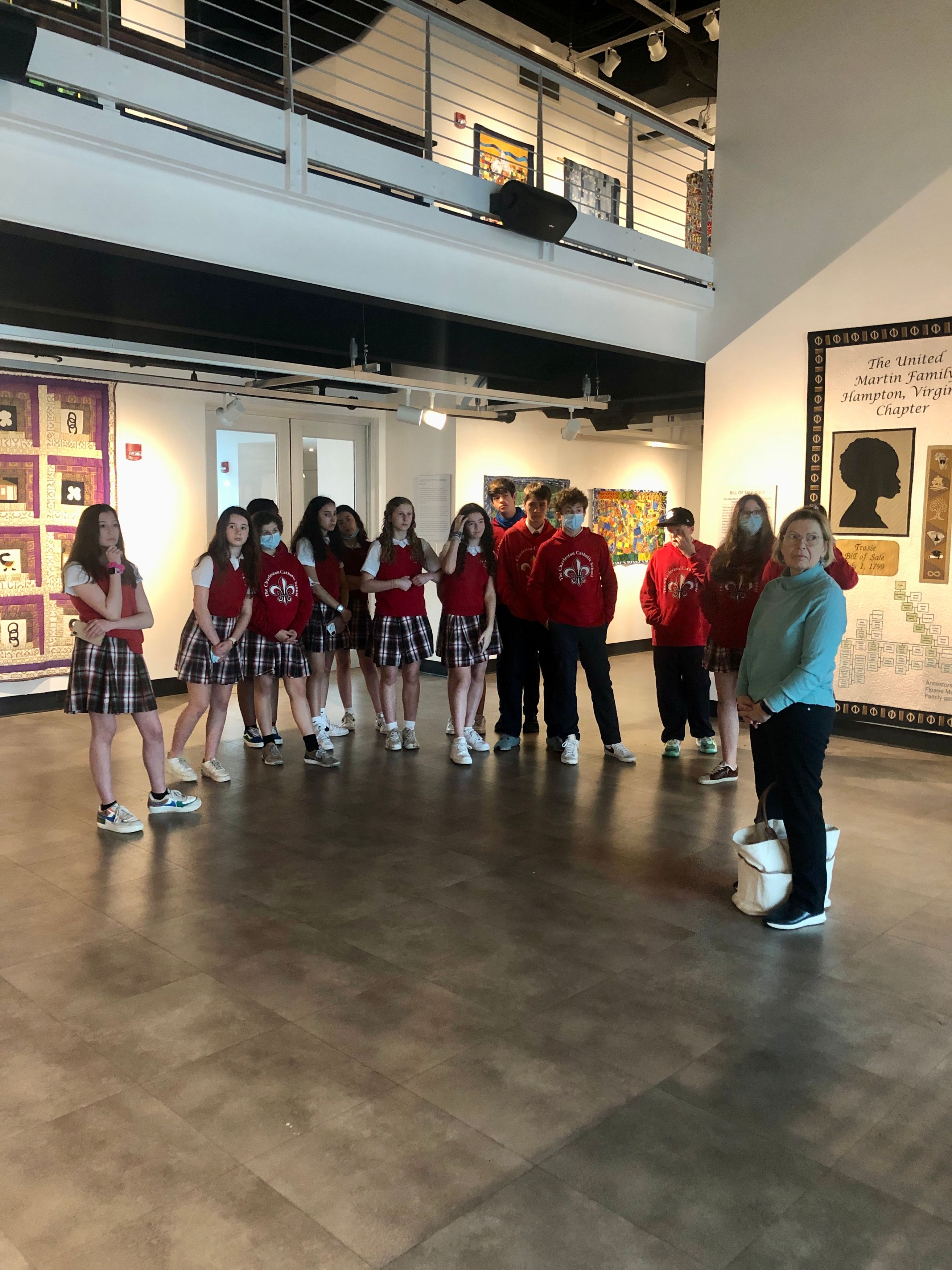8th Grade Curriculum
8th Grade Curriculum

detailed curriculum from diocese
math-science-social studies
ela standards
Religion
The main topics of study in 8th grade religion are a review of Church History and Catholic Belief during the first semester and Morality during the second semester. The course also follows the liturgical year; reviewing the Sunday gospel each week and attending to Feasts, Solemnities and Memorials in the year.
First semester topics include:
• Revelation, Scripture, and Tradition
• Faith and Science
• The Blessed Trinity
• The Incarnation
• Essential Features of the Church
Second semester topics include:
• The Ten Commandments
• Living the Catholic Faith
• Evangelization
Reading
Students will complete two units from their textbooks each quarter. They will also read two novels each quarter, one as a class, and one individually. Also, the teacher will provide supplementary readings to the textbooks and the students will do their own research. This will require them to gather many sources and analyze them for a major project.
Language Arts
• Review of parts of speech with emphasis on adverb and adjective clauses, prepositional phrases
• Grammar review: emphasis on capitalization and punctuation rules
• Sentence diagramming
• Short journal jottings 2-3 times a week
• Two major essays during quarter (Descriptive, Narrative, Persuasive) with 3-5 minor essays
• Research paper in conjunction with science fair project
• Review of basic comprehension skills with emphasis on drawing conclusions and inference and literal, figurative and idiomatic language
• Text stories as well as novel studies (3-5 per year)
• Book reports: reported in written, dramatic, and artistic form
• Poetry Unit
Science
In eighth grade science, the focus is on earth science. All concepts are taught in a cultural contextual framework and students are encouraged to hypothesize about and explore the world around them. Study skills are emphasized and higher level thinking activities form the basis of the course. Students explore several concepts in depth including:
• Earth’s Past
• The Atmosphere
• Weather Patterns
• Alternative Energy Sources
• The Solar System
• Ocean Properties
Algebra I
Algebra I is offered to especially talented eighth grade students who are willing to devote a substantial amount of time to the study of mathematics. This course qualifies for high school credit and students who successfully complete the course may take a higher level math course when they reach 9th grade.
Algebra concepts are introduced with applications and connections to emphasize the practical applications of algebra. Problem-solving strategies are taught, applied, and integrated throughout the course. The first course in algebra presents intense sequential development laying the foundation for all future math courses. Students are challenged and encouraged to master procedural, problem-solving, and computational skills while developing analytical thinking skills that will provide a solid foundation for future mathematics coursework. Topics and skills taught include:
• Using real numbers and expressions to solve problems
• Solving equations
• Exponents and exponential functions
• Factoring polynomials and solving polynomial equations
• Problem solving using factoring
• Writing and graphing linear functions
• Solving, problem solving, and graphing systems of linear equations
• Solving and graphing linear inequalities
• Operating with rational and irrational numbers
• Solving and graphing quadratic functions
Social Studies
The American Republic since 1877
In Curriculum Standards for Studies: Expectations of Excellence, the National Council for the Social Studies identified 10 themes that serve as organizing strands for the social studies curriculum. These themes are interrelated and draw from all of the social science disciplines. Each theme provides student performance expectations in the areas of knowledge, processes and attitudes. Students will study the follow themes and concepts:
• Culture and traditions
• Continuity and change
• Geography and history
• Individual action
• Groups and institutions
• Government and democracy
• Economic factors
• Science and technology
• Global connections
• Civil rights and responsibilities
spanish 1
This course is a study of basic grammar and vocabulary with emphasis on conversation and other basic skills. Verb study, speaking, reading, and writing are stressed. Spanish/Hispanic culture and geography are also introduced on this level. A student can receive high school credit for this course when all prerequisites are met including minimum GPA by quarter as well as minimum midterm exam scores.
